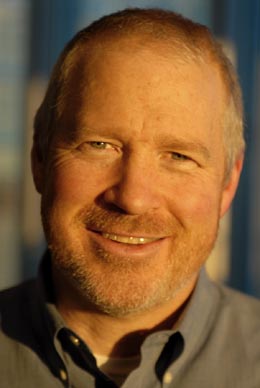When it comes to politics, there are advantages to incumbency. Perhaps the biggest is an ability to get in front of cameras. And until last week’s weapons-to-words-to-rebar gaffe, Seattle Mayor Mike McGinn seemed to be taking full advantage.
A simple look at McGinn’s itinerary last week paints the picture. On Monday, McGinn held a press conference announcing reforms to the way the Seattle Police Department recruits potential officers, hyping a program designed to increase diversity amongst the police rank and file. On Tuesday, McGinn was back in front of cameras, touting the Weapons to Words program (despite the fact the weapons in question had already been turned into rebar). Wednesday saw more of the same, with McGinn announcing his “million gallon challenge,” designed to cut the City’s annual use of petroleum-based fuels by 1 million gallons by 2020. And, finally, on Thursday McGinn was front and center at Zillow headquarters, trumpeting Startup Seattle, described as “an initiative to support the growth of the Seattle technology startup community and establish Seattle as an internationally recognized home for emerging technology companies.”
For those playing at home, that’s four feel-good press conferences in four days. And who knows, there might have been a fifth had McGinn not got caught up in that whole ridiculous rebar mess, which KIRO Radio broke the news of Thursday.
While it’s not unheard of for incumbents to utilize their office to generate positive headlines during campaign season – in fact, it’s the norm, as this piece on press releases from Crosscut makes clear – McGinn’s hyperactive press conference schedule of late, according to at least one mayoral campaign adviser speaking on background, has gone above and beyond.
Tim Ceis, the deputy mayor under Greg Nickels and now a political consultant for Ceis Bayne East Strategic, remembers his former boss’ “normal schedule” including one press conference or media availability a week. “Sometimes due to circumstances such as scheduling or the ripeness of an issue there might be two,” Ceis says. “But not more than that.”
Ceis says it’s a schedule Nickels maintained even during election cycles in 2005 and 2009. “We found that by trying to do too many press events they appear staged and the messaging gets diluted,” he says. “[It’s] much better to have a press conference when there really is something to report, rather than trying to manufacture news to get coverage. The media stop paying attention at some point.”
Which, of course, raises the question: Has McGinn reached that point?
“I think the media is in a better position to make that judgment,” says Ceis. “However, the recent guns to plaques ‘omission’ may be symptomatic.”
Cathy Allen, a longtime Seattle political consultant and the spokeswoman for Peter Steinbrueck mayor campaign, seems to think McGinn is helping his competitors out with all the press events.
“The biggest mistake you can make with reporters is to bore them to death this early in the campaign with too many newsless press events and press releases that are regurgitations of what the press already knows,” she wrote in an email. “Let him go for it!”
According to the McGinn camp, the situation has more to do with timing than pure politics – though no one denies politics probably play a part.
“I’m guessing that a bunch of the work they are doing has taken awhile to finish and has culminated at the end of their first term,” says McGinn campaign spokesperson John Wyble when asked about the number of recent press conferences the mayor has held.
“I’m sure some of it is also about putting their best foot forward this year as well,” he says.








